Frank Herbert’s Dune Script Unearthed And It Is An Absolute Rollercoaster Of Weirdness
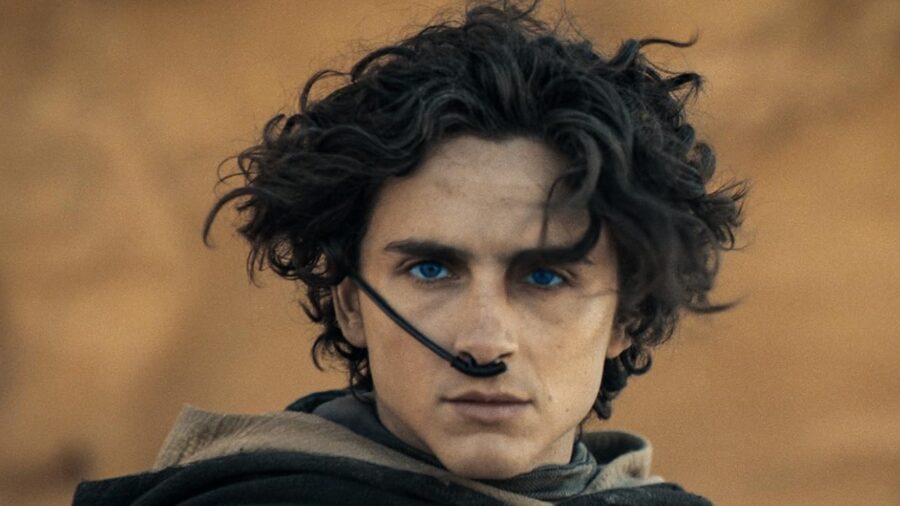
As Dune: Part Two continues its successful global box office run, fans of Frank Herbert’s original masterpiece have been unhappy with some of the changes director Denis Villeneuve made to cherished characters and storylines. However, a recently unearthed screenplay for the film written by the acclaimed author was very messy by comparison.
Unearthed Last Year
The screenplay was discovered by Max Evry, who was doing research for his book A Masterpiece in Disarray: David Lynch’s Dune – An Oral History in 2023. Commissioned in 1976 by producer Dino De Laurentiis, the 321-page script offers a fascinating glimpse into Herbert’s attempt to translate his sprawling novel into a story worthy of the big screen.
The Box
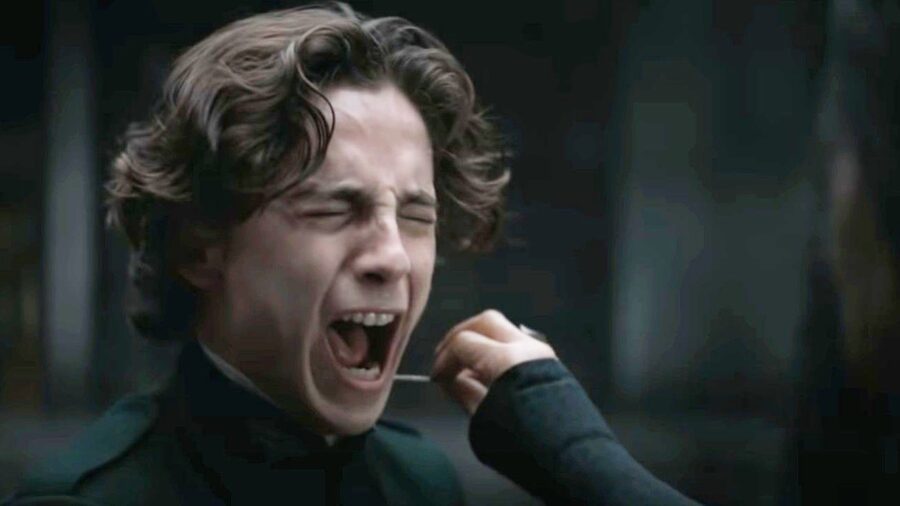
Herbert’s Dune script suffers from a multitude of peculiarities that range from the awkward to the downright bizarre. From clunky dialogue to convoluted exposition, it’s clear that the author had reservations about its effectiveness. One of the script’s early missteps occurs during the iconic “Agony of the Box” scene, where Paul Atreides undergoes the Reverend Mother’s test.
Instead of the succinct and impactful dialogue found in the Dune novel, Herbert’s script meanders through three pages of awkward exchanges that lack the punch seen in the book. The script also struggles to streamline the dense terminology of the Dune universe, resulting in stilted exchanges that feel more like a linguistic obstacle course than coherent dialogue.
In the Dune script, Mohiam says, “We must know if you are animal. Humans can make the conscious choice despite the agony. Animals never think of consequences!” But in the novel, Mohiam says, “You’ve heard of animals chewing off a leg to escape a trap? There’s an animal kind of trick. A human would remain in the trap, endure the pain, feigning death that he might kill the trapper and remove a threat to his kind.”
The Attack On The Spice Harvester

Characters wax poetic about CHOAM and Sardaukar in a manner that confounds rather than enlightens. The script’s handling of action sequences is equally perplexing. Scenes that should be tense are bogged down by unnecessary detail. During the mining operation interrupted by a worm attack, Herbert inexplicably focuses on the removal of seats from ornithopters, derailing the scene’s urgency.
The Relationships Between The Characters
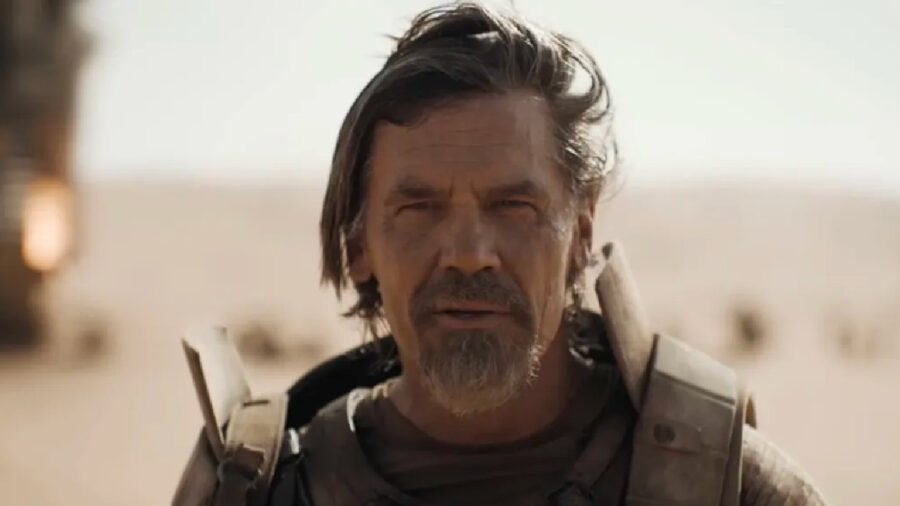
But perhaps the Dune script’s most peculiar moments come in its attempts to flesh out character dynamics and relationships. Herbert introduces bizarre interactions between Stilgar and Duncan Idaho, complete with clunky exposition and awkward banter that feels more suited to a parody than a serious adaptation.
In one scene, Stilgar shouts, “No shields, you fool! Your shield will bring a… worm!” To which Idaho responds, “I know! But one of these fools was about to use a lasgun!”
Despite its flaws, Herbert’s script offers a fascinating insight into the challenges of adapting Dune for the screen. It serves as a reminder that translating books into a visual medium requires more than staying true to the source material.
The Houses
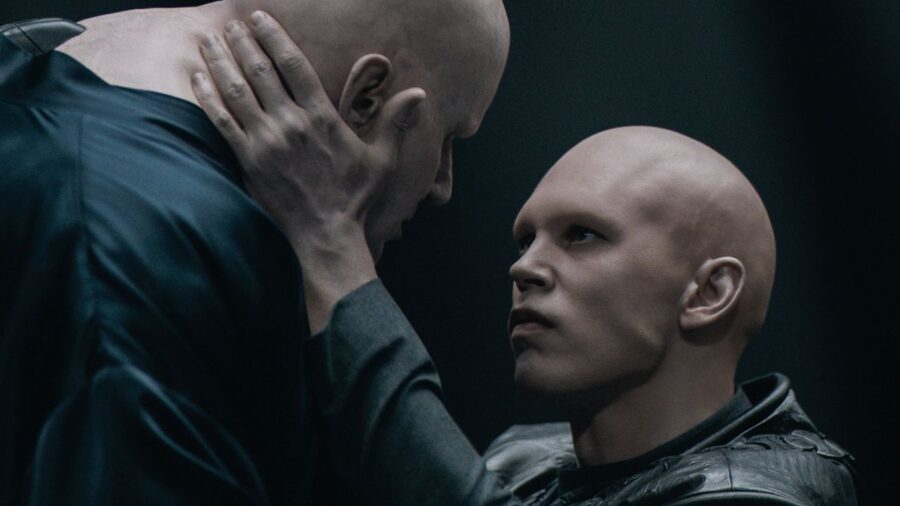
Dune’s allure lies in its intricate handling of complex geopolitics within a universe that, despite its differences, reflects many familiar aspects of humanity. The various houses and inhabitants of different planets in the series are all descendants of Earth’s population, who are dispersed across the Known Universe.
This explains the varying appearances and attitudes of House Atreides, House Harkonnen, and others while still retaining common human traits. Religion and warfare play significant roles in the Dune universe. While some folks may not be happy with the changes, some story arcs, such as the controversial Jihad led by Muad’Dib, needed to be updated for contemporary audiences.
Dune: Part Two
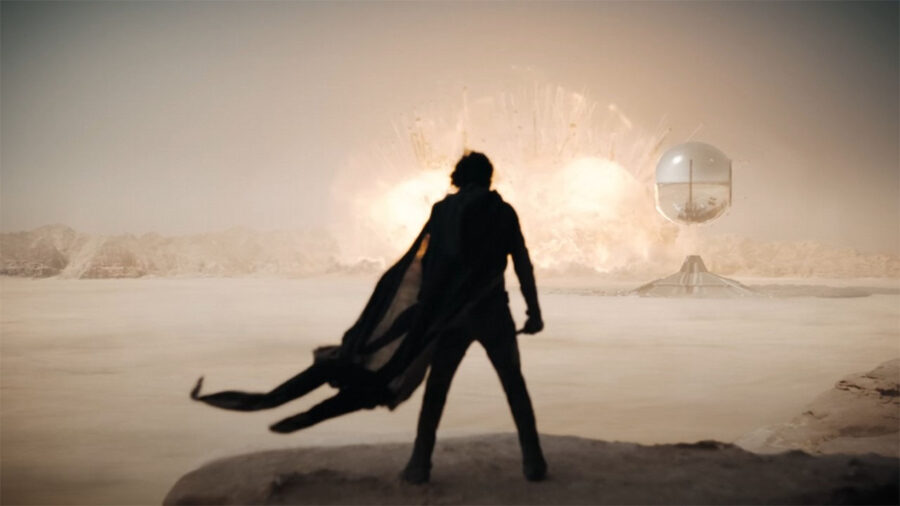
Dune: Part Two sees Paul Atreides (Timothee Chalamet) joins forces with Chani (Zendaya) and the Fremen as he seeks vengeance against those responsible for his family’s downfall. Faced with a difficult decision between his personal desires and the greater good of the universe, he struggles with the responsibility of preventing a catastrophic future.
Source: Wired













